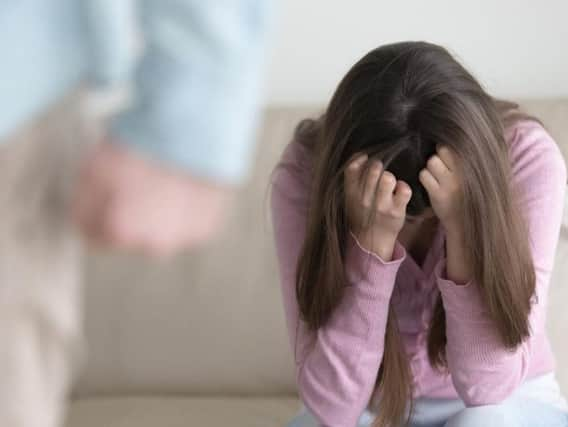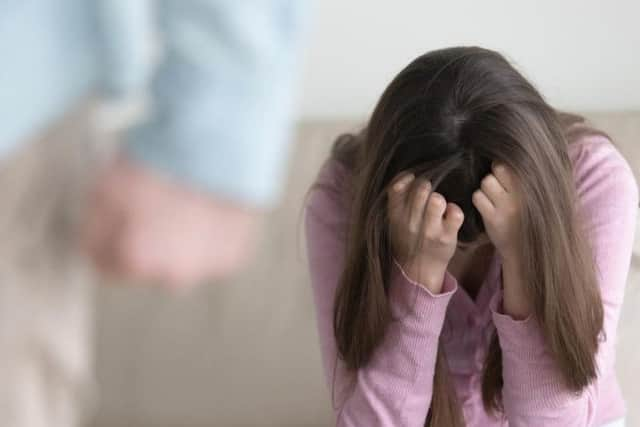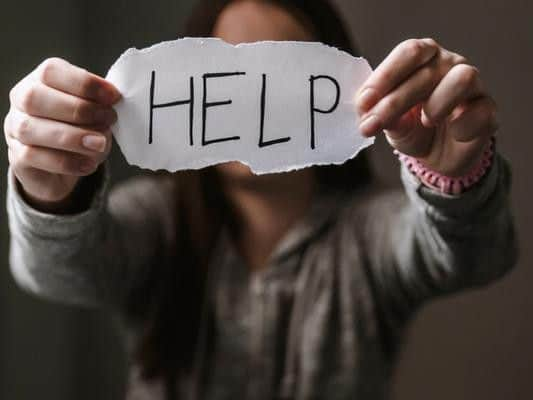Domestic violence: what constitutes abuse and how to get help


More than 170 people were killed in domestic-violence related homicides last year – an increase of 32 deaths from 2017, the BBC reports.
Data obtained by the BBC from 43 police forces across the UK found that while both men and women are killed by domestic violence, around 75 per cent are female victims. Suspects are predominantly male.
What constitutes domestic abuse?


Advertisement
Hide AdAdvertisement
Hide AdDomestic abuse can occur in a variety of different forms, but is always about having power and control over a person.
Women’s Aid defines is as “an incident or pattern of incidents of controlling, coercive, threatening, degrading and violent behaviour, including sexual violence, in the majority of cases by a partner or ex-partner, but also by a family member of carer”.
Domestic abuse can include, but is not limited to, the following behaviours:
- Coercive control – a pattern of intimidation, degradation, isolation and control, with the use or threat of physical or sexual violence


- Psychological and/or emotional abuse
- Physical or sexual abuse
- Financial or economic abuse
- Harassment and stalking


- Online or digital abuse
How to spot domestic abuse
Advertisement
Hide AdAdvertisement
Hide AdArguments and disagreements are common in both romantic relationships and with family or friends, but if this becomes a consistent occurrence it could be an indication of domestic violence and abuse.
Women’s Aid lists a set of questions designed to help people recognise if they are in an abusive relationship, including whether you have ever changed your behaviour because you are afraid of what your partner might do to you.
The questions can be answered anonymously online and if you answered ‘yes’ to one or more, you could be a victim of domestic abuse.
How to get help
If you know someone who is experiencing domestic violence and abuse, there are some steps you can take to assist them and provide support.
Advertisement
Hide AdAdvertisement
Hide AdGov.uk advises supporting them as a friend and encouraging them to express their feelings, and allowing them to make their own decisions – including whether or not to leave the relationship.
If they decide they want to leave the relationship, you can advise them to get in touch with a local domestic abuse service for support.
Victims can also contact the National Domestic Violence Helpline, which is run in partnership between Women’s Aid and Refuge, to discuss the situation in confidence.
The freephone helpline, available on 0808 2000 247, is available 24 hours a day, seven days a week, and also offers support to survivors of domestic abuse.
Advertisement
Hide AdAdvertisement
Hide AdDomestic violence or abuse should be reported to the police through your local neighbourhood policing team, or by calling 999 if it is an emergency or you are in immediate danger.
However, there are also other organisations who can help.
Contact any of the following organisations to get help or seek advice about domestic violence and abuse:
- English National Domestic Violence Helpline - 0808 2000 247
- Galop (for lesbian, gay, bisexual and transgender people) - 0800 999 5428
- Men’s Advice Line - 0808 801 0327
- Rape Crisis (England and Wales) - 0808 802 9999
Advertisement
Hide AdAdvertisement
Hide Ad- Scotland’s Domestic Abuse and Forced Marriage Helpline - 0800 027 1234
- Scottish Women’s Aid - 0131 226 6606
- Wales Domestic Abuse Helpline - 0808 80 10 800
- Women’s Aid Federation (Northern Ireland) - 0800 917 1414